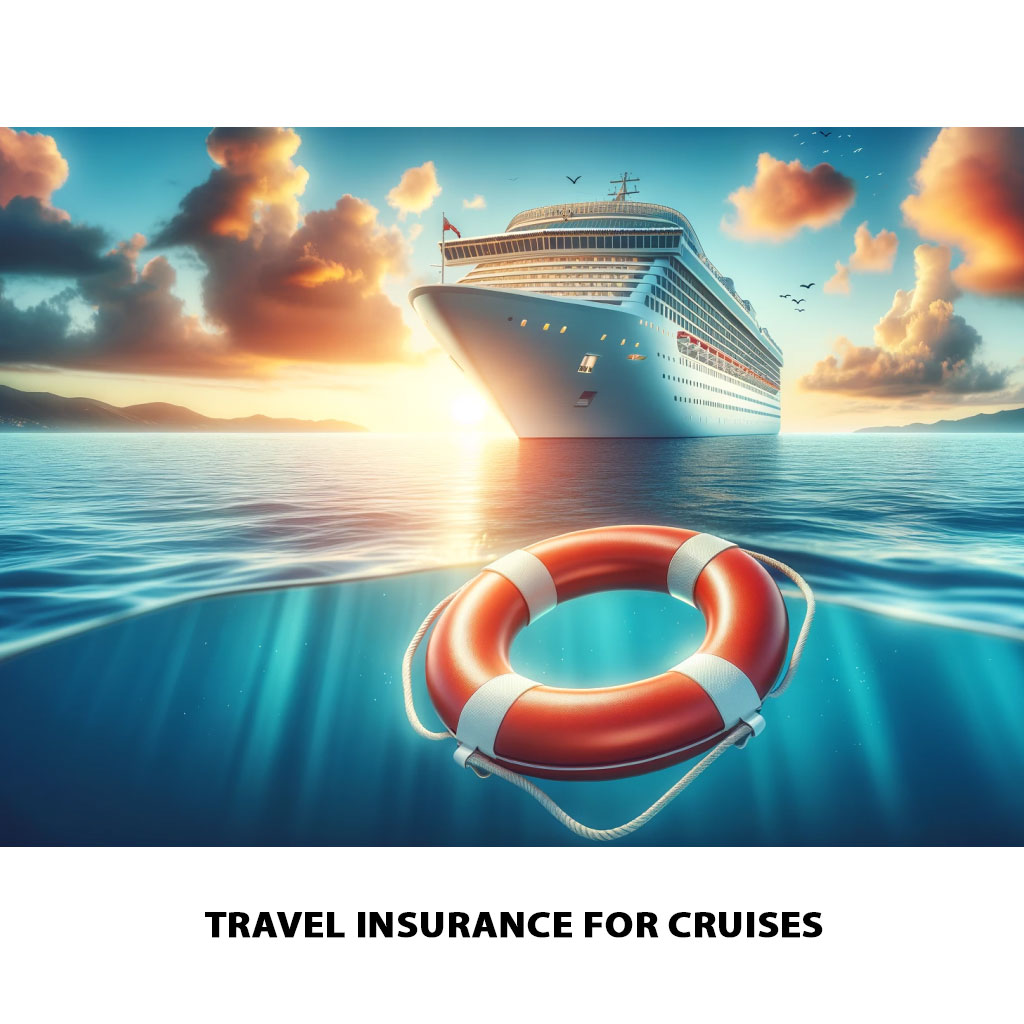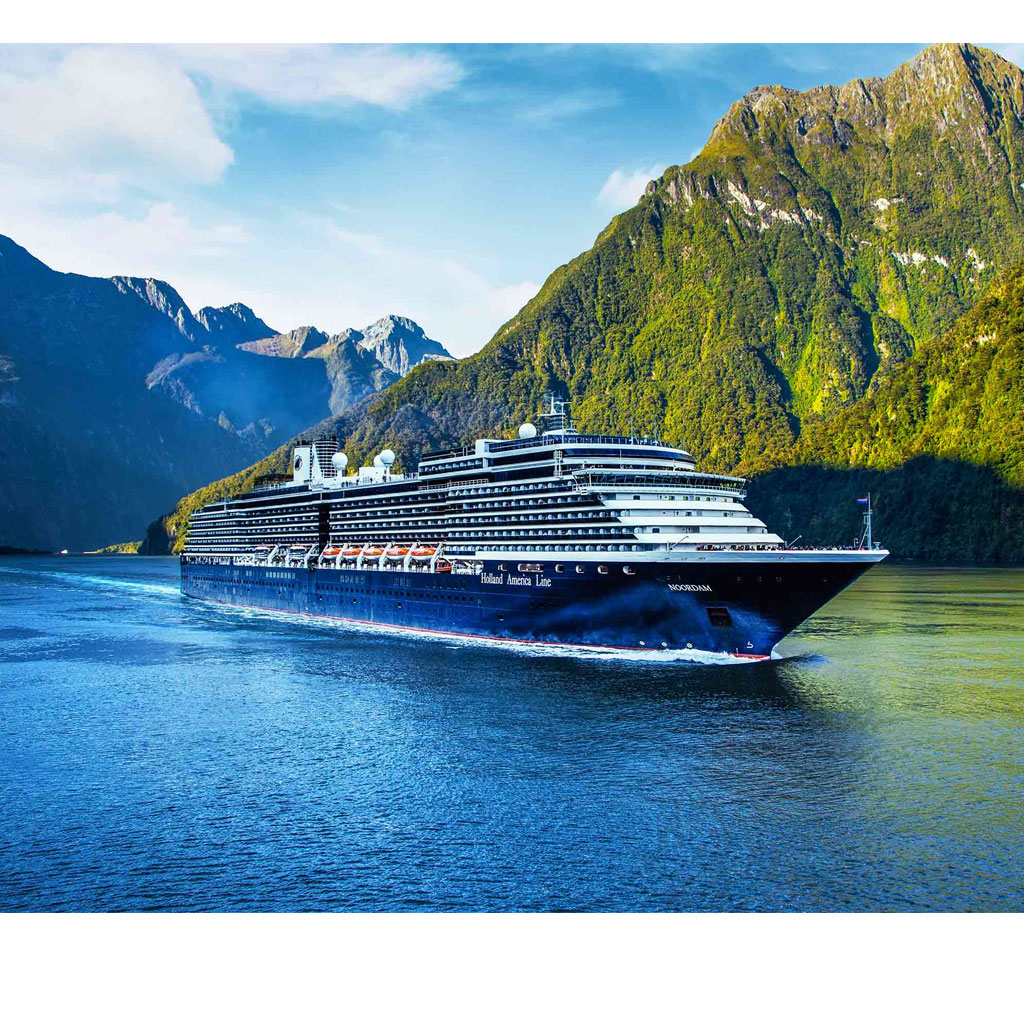Why It’s Essential and How to Choose the Right Policy
Embarking on a cruise is an exciting adventure, offering the chance to explore new destinations and enjoy world-class amenities.
However, like any trip, cruises come with their own set of risks. This is where travel insurance for cruises comes into play.
While it may seem like an extra expense, having the right insurance can provide peace of mind and financial protection against unexpected events.
Why You Need Travel Insurance for Cruises

Travel insurance for cruises is not just a formality—it’s a crucial part of travel planning. Here’s why:
1. Unexpected Cancellations
Imagine you’ve been looking forward to your cruise for months, but suddenly, due to unforeseen circumstances, you have to cancel. Without insurance, you might lose a significant portion of your investment. Travel insurance can help cover cancellation fees, ensuring you’re not left out of pocket.
2. Medical Emergencies
While on a cruise, you might encounter a medical emergency. Cruise ships are equipped with medical facilities, but they may not have the capability to handle serious issues. If you need evacuation or specialized treatment, the costs can be exorbitant. Travel insurance for cruises often includes medical coverage, including emergency evacuation.
3. Lost or Delayed Baggage
Losing your luggage or experiencing delays can turn your vacation into a hassle. Insurance can provide compensation for lost or delayed baggage, helping you replace essential items and continue enjoying your trip.
4. Travel Delays
Cruise itineraries can be affected by weather or other unforeseen factors. If you miss a connection or your cruise is delayed, travel insurance can help cover additional expenses incurred during the delay.
5. Trip Interruption
In the unfortunate event that you need to cut your trip short due to an emergency, insurance can help cover the costs of returning home early and any non-refundable expenses.
What Does Travel Insurance for Cruises Typically Cover?

When shopping for travel insurance, it’s important to understand what’s included in the policy. Here are some common coverages:
1. Trip Cancellation and Interruption
This coverage reimburses you for non-refundable expenses if you have to cancel or cut short your trip due to covered reasons, such as illness, a family emergency, or other unexpected events.
2. Medical Expenses
Travel insurance for cruises usually includes coverage for medical emergencies that occur during your trip. This can include hospital stays, doctor visits, and emergency medical evacuation.
3. Baggage Loss and Delay
This coverage compensates you if your baggage is lost, stolen, or delayed. It can help you replace essential items and manage the inconvenience.
4. Travel Delay
If your trip is delayed, insurance can cover additional expenses such as accommodation and meals. This is particularly useful if the delay causes you to miss part of your cruise.
5. Emergency Evacuation
In case of a serious medical emergency that requires evacuation from the cruise ship or destination, insurance can cover the costs of evacuation and transportation to a medical facility.
How to Choose the Right Travel Insurance for Cruises

Choosing the right insurance policy involves considering several factors. Here’s a step-by-step guide to help you make an informed decision:
1. Assess Your Needs
Before purchasing a policy, evaluate your specific needs. Consider factors such as your health, the length of your cruise, and the destinations you’ll visit. This will help you choose a policy that offers appropriate coverage.
2. Compare Policies
Not all travel insurance policies are created equal. Compare different policies to see what’s included and at what cost. Pay attention to the coverage limits and any exclusions.
3. Check for Cruise-Specific Coverage
Ensure that the policy you choose covers cruise-related issues. Some standard travel insurance policies may not include coverage for certain cruise-related scenarios, so look for policies specifically designed for cruises.
4. Read the Fine Print
Carefully review the terms and conditions of the policy. Look for details on exclusions, claim procedures, and the process for filing a claim. Understanding these details can help avoid surprises if you need to use the insurance.
5. Consider Additional Coverage
Depending on your needs, you might want to add optional coverage for things like adventure sports or high-value items. Some policies offer customizable options to enhance your coverage.
6. Purchase Early
Buy your travel insurance as soon as you book your cruise. This ensures that you’re covered for any pre-existing issues and protects your investment from the outset.
Nonfiction:Why Travel Insurance Matters
The Medical Emergency
Lisa and her husband were excited about their Mediterranean cruise. However, halfway through the trip, Lisa suffered a serious medical emergency. Fortunately, they had purchased travel insurance, which covered the cost of emergency evacuation and treatment. Without insurance, the medical bills could have been financially devastating.
The Lost Luggage
John and his family arrived at their cruise departure port, only to find that their luggage had been lost. Thanks to their travel insurance, they received compensation for their lost belongings and were able to purchase necessary items to continue enjoying their vacation.
The Trip Cancellation
Sarah had planned a dream cruise to Alaska, but an unexpected family emergency forced her to cancel. With travel insurance, she was reimbursed for the non-refundable expenses, allowing her to manage the situation without additional financial stress.
Conclusion
Travel insurance for cruises is a crucial investment that can protect you from unexpected events and provide peace of mind during your trip. By understanding the coverage options and choosing a policy that fits your needs, you can ensure that your cruise experience remains enjoyable and worry-free. Don’t overlook this important aspect of travel planning—protect your adventure and enjoy your cruise with confidence.
FAQs
1. Is travel insurance mandatory for cruises?
No, travel insurance is not mandatory, but it is highly recommended. It provides financial protection against various risks that can occur during your cruise.
2. What types of travel insurance are best for cruises?
Look for policies specifically designed for cruises, as they often include coverage for cruise-related issues that standard travel insurance might not cover.
3. Can I purchase travel insurance after booking my cruise?
Yes, but it’s best to purchase it as soon as you book your cruise to ensure full coverage for cancellation and other pre-trip issues.
4. What should I do if I need to file a claim?
Contact your insurance provider as soon as possible to start the claims process. Make sure to keep all documentation related to your claim, such as receipts and medical records.
5. How much does travel insurance for cruises cost?
The cost varies based on factors such as the length of your cruise, your age, and the coverage amount. Compare different policies to find one that fits your budget and coverage needs.


![Travel Insurance for Cruises in 2024 [Ultimate Guide]](https://yachtdeliverysolutions.co.nz/wp-content/uploads/2024/08/Choose-the-Right-Policy-1170x628.jpg)
Leave a reply